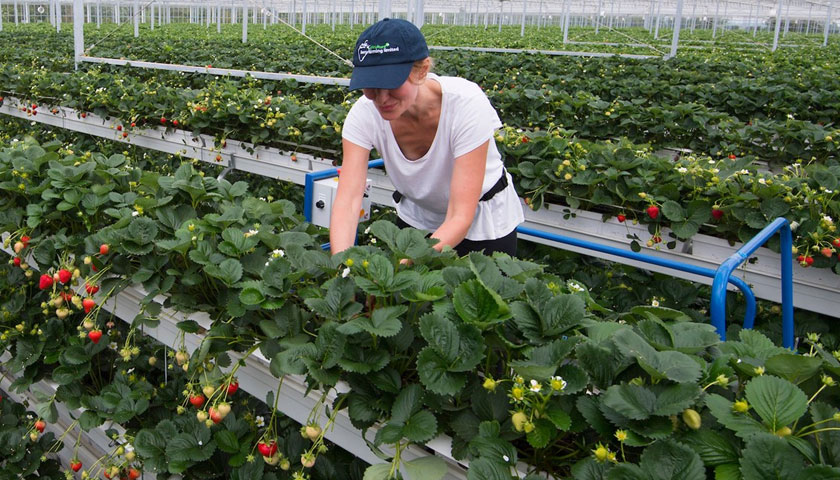A revolutionary and significantly greener way of growing fruit and vegetables in the UK is starting to gather pace.
From this week a West Sussex fruit grower will deliver to Tesco the first commercial volumes of vertically-grown strawberries in a production system requiring 50 per cent less water and with a 90 per cent reduction in carbon footprint per kilo of fruit.
Even better news for space-challenged fruit and vegetable farmers is that yields from vertically-grown crops are significantly higher than by using conventional production methods.
Direct Produce Supplies Ltd (DPS), who have been supplying Tesco with fresh produce for 40 years, have been trialling vertically-grown strawberries for the last three years at their farm near Arundel, West Sussex.
Now the fruits of their labour are ready to hit stores, with a predicted yield of nearly 1,000,000 kgs of strawberries to the supermarket this summer.
But more importantly for other fresh produce growers is that the vertical technique they used will have massive energy saving implications for the environment and also lead to better fruit availability and quality.
In the last three years, DPS – who have developed and planned the ground-breaking project exclusively with Tesco – have tested several different structures and methods. They have now developed a system which:
- Requires 50 per cent less water than everyday production
- Has a 90 per cent lower carbon footprint per kilo of strawberries
- Yields five times more fruit per square metre than existing methods
- Can deliver a constant supply of strawberries for up to nine months without the impact of adverse weather conditions
Tesco fruit technical manager Sabina Wyant said:
“Vertical crop production is a giant step for fresh produce growers in helping reduce their carbon footprint and use less water, at the same time boosting their yields.
“For shoppers there is also a clear benefit, with consistent quality fruit and availability for up to nine months of the year, regardless of the weather conditions.
“By example, right now during Wimbledon fortnight, the UK sees the highest demand of the year for strawberries but sometimes adverse weather conditions can challenge production at this time, leaving retailers with a shortfall.
“Vertical-farming will put an end to that uncertainty and ensure perfect growing conditions during an extended nine month season.”
The premise of vertical farming is growing fruit or vegetables indoors under fully controlled conditions and reducing the industry’s environmental impact.
This is done hydroponically – with a water feed – instead of in soil, in multiple stacked layers in an indoor environment which guarantees yields while improving the supply of healthy, nutritious food and minimising the miles involved in its distribution.
DPS CEO Paul Beynon said:
“Vertical farming offers growers a protected environment that requires significantly less land, water and energy to produce excellent quality crops.
“We chose our farm location near Chichester on the south coast because this region gives the highest natural levels of light and heat in the UK and so maximises the potential.
“We are still at a relatively early stage in vertical-growing and in the future we believe that we can make even further advances in sustainable strawberry production and that other fruit crops could take to the system in a similar way.”



